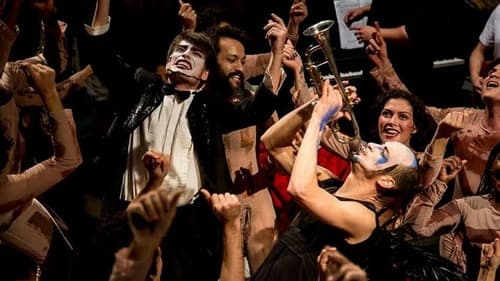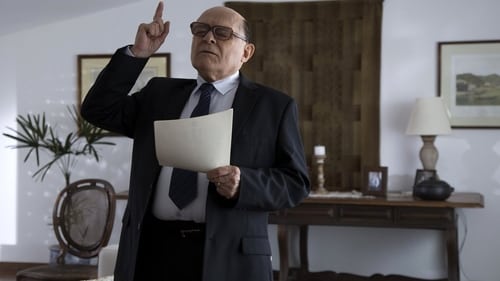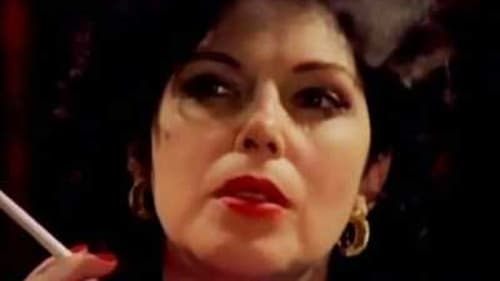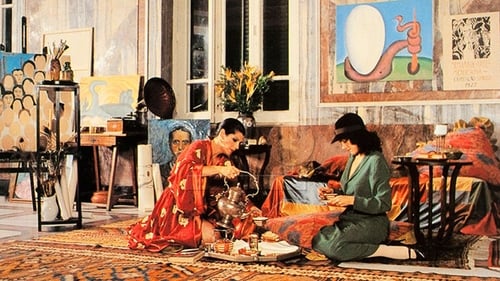Esther Góes
Birth : 1946-02-04, São Paulo, São Paulo, Brazil

Self
In six decades, Teatro Oficina has done more than revolutionize theatrical language in the country: the aesthetic influence of José Celso Martinez Corrêa's company extends from Tropicalism to the renewal of Brazilian audiovisual languages from the 1960s onwards. The film revisits a story that it involves personalities such as Caetano Veloso, Glauber Rocha, Lina Bo Bardi, Chico Buarque and Zé do Caixão, brings together scenic art, ecology, architecture and sexuality, and mixes art and life in the search for a Brazilian based language.

A group of friends working on an offshore oil rig maintain close bounds and do their best to face the difficulties presented by living and working isolated out in the middle of the sea. A job promotion triggers events that disrupt, in an irreversible way, the group friendship and the protagonist’s own life on land. He is tested by the force of destiny and experiences the drama of an ordinary man facing a gradual process of isolation.

Eulália
A group of friends working on an offshore oil rig maintain close bounds and do their best to face the difficulties presented by living and working isolated out in the middle of the sea. A job promotion triggers events that disrupt, in an irreversible way, the group friendship and the protagonist’s own life on land. He is tested by the force of destiny and experiences the drama of an ordinary man facing a gradual process of isolation.

Risoleta
The true story of Tancredo Neves, the first civilian president of Brazil after a 20-year military dictatorship, and the infamous hospitalization which led to his death before he ever managed to take office.

Magali Birman
An intriguing case lands on Mandrake's desk. Just when he thinks he has it solved, some unexpected news changes the course of events.

Gabi

Alexandra
A famous actor believes he has totally mastered his craft. A young and talented actress is open to new challenges. They meet, and confront each other; on, and off the stage. From his personal and artistic lethargy, he sees the possibilities of a new beginning, new opportunities, after starting to see her. The story unravels, as the title states, "behind the curtain."

Mãe de Lorena
During the military dictatorship in Brazil, Lorena, Lia and Ana Clara, three university students of different social backgrounds and origins meet at a nun's pension in São Paulo. Besides their differences, they become close friends, sharing their dramas and dreams, helping each other until the day they have to separate permanently.

Theater director asks his actors for a research on human cruelty and misery in Brazil, while trying to raise funds for his next production, a play based on a story by Machado de Assis, "A Causa Secreta" (The Secret Cause). The troupe oblige and go around town witnessing long lines in National Health Services, inhuman conditions in public hospitals and poor people being constantly humiliated. They find people are becoming indifferent to human suffering.

A young rock singer meets his childhood heroine, a famous singer who is now wallowing in alcohol and sex.

(narração)

Herself
Hunting Season deals with the wave of homosexual murders that plagued São Paulo and Rio de Janeiro in the 1980s. With street statements and cultural and artistic figures such, such as Zé Celso, Jorge Mautner, Roberto Piva and others.

Tarsila do Amaral
Eternamente Pagu is a biographical film about Patrícia Galvão, best known as Pagu, a Brazilian political, literary and artistic activist. An important figure of the Brazilian Modernism, Pagu was also a militant for the Brazilian Communist Party after she married writer Oswald de Andrade. She broke up with Andrade and, as a journalist was arrested by the Dictatorship of Getúlio Vargas. After she left prison, she abandoned Communism in favor of Trotskyist Socialism, married Geraldo Ferraz, and started a career as theatre director.

Vera
A TV reporter tries to find out who is killing prostitutes in a São Paulo neighbourhood.

Heloísa de Lesbos
Filming of the historical montage of Oswald de Andrade's play, where decadent millionaires, depraved children, corrupt and implacable capitalists are the characters interpreted by the Grupo Oficina, in a celebrated theatrical performance from 1967, fundamentally recorded in 1971 and released only in the 1980s.











